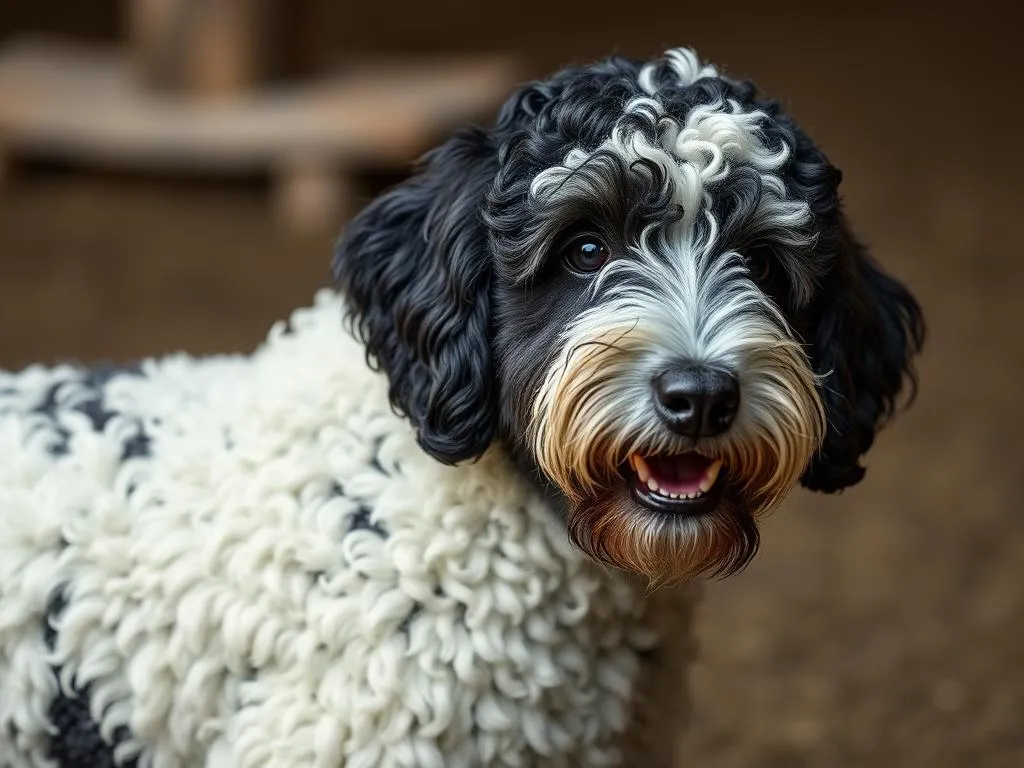
Introduction
Dog breeds play a significant role in the lives of pet owners, influencing everything from behavior and temperament to grooming needs and health considerations. Choosing the right breed is crucial for ensuring a harmonious relationship between the dog and the owner’s lifestyle. Among the many breeds available, the Sheepadoodle stands out as a delightful crossbreed of the Old English Sheepdog and the Poodle, combining the best traits of both parent breeds.
This article aims to provide comprehensive information about Sheepadoodles, including their characteristics, health considerations, grooming requirements, training tips, and how they compare to similar breeds.
Understanding Dog Breeds
A dog breed is defined as a specific group of domestic dogs with a distinct set of characteristics, including appearance, behavior, and temperament. Dog breeds can be classified into two categories: purebreds and mixed breeds. Purebreds are those whose lineage can be traced back to a single breed, while mixed breeds, like the Sheepadoodle, result from the intentional or accidental breeding of two or more different breeds.
Understanding breed characteristics is essential for potential dog owners. These characteristics encompass:
- Temperament: The inherent personality traits of the breed.
- Size: The average height and weight range.
- Energy Level: The activity level and exercise needs of the breed.
Dog breeds fall into several categories, including working, herding, sporting, hound, terrier, toy, non-sporting, and miscellaneous breeds. Each category serves a unique purpose, influencing factors like behavior and suitability for various owners.
The Sheepadoodle: An Overview
Breed Origin
The Sheepadoodle is a relatively new designer breed that emerged in the 1980s. Breeders sought to combine the intelligence and hypoallergenic qualities of the Poodle with the gentle and friendly nature of the Old English Sheepdog. This crossbreed was developed primarily to create a family-friendly dog that also had low-shedding fur, making it suitable for allergy sufferers. The Sheepadoodle has quickly gained popularity due to its charming personality and versatility.
Physical Characteristics
The size of a Sheepadoodle can vary significantly, depending on whether it is a miniature, standard, or toy variety. Generally, they range from 10 to 24 inches in height and weigh between 25 to 65 pounds. Their coat can be curly, wavy, or straight, and colors can include black, white, gray, and various combinations of these colors. The typical lifespan of a Sheepadoodle is around 12 to 15 years, depending on health and care.
Temperament and Behavior
The Sheepadoodle is known for its friendly and sociable nature. They are intelligent dogs that thrive on companionship and love being part of the family. Their temperament makes them excellent with children and other pets, often displaying a gentle and playful attitude. Training and obedience levels are generally high, as they are eager to please their owners. Early socialization and training are essential to ensure they grow into well-behaved adults.
Health Considerations for Sheepadoodles
Common Health Issues
Like all breeds, Sheepadoodles are susceptible to certain health issues, often inherited from their parent breeds. Common health concerns include:
- Hip Dysplasia: A genetic condition affecting the hip joint.
- Eye Problems: Conditions like cataracts and progressive retinal atrophy can occur.
- Allergies: Due to their Poodle lineage, they may also experience skin allergies.
Regular health screenings are crucial, and responsible breeders should provide health clearances for the parent breeds.
Preventive Care
Preventive care plays a vital role in maintaining the health of a Sheepadoodle. Regular vet check-ups are essential to monitor health conditions and catch any issues early. Additionally, vaccinations and parasite control (like flea and tick prevention) are important to keeping your dog healthy and happy.
Grooming and Maintenance
Coat Care
Sheepadoodles boast a beautiful coat that requires regular grooming. The frequency of grooming depends on the coat type:
- Curly Coats: Require more frequent grooming (every 4-6 weeks) to prevent matting.
- Wavy Coats: Generally require grooming every 6-8 weeks.
- Straight Coats: Can go longer between grooming sessions, about 8-12 weeks.
Recommended grooming tools include slicker brushes, combs, and dematting tools. It’s essential to check for tangles regularly and trim hair around the eyes and paws.
Bathing and Ear Care
Bathing a Sheepadoodle should be done as needed, typically every 1-3 months, depending on their activity level and how dirty they get. Regular ear cleaning is also vital to prevent infections, and dental care should not be overlooked—brushing their teeth two to three times a week is ideal.
Training and Socialization
Basic Training Tips
Training a Sheepadoodle is an enjoyable experience due to their intelligence and eagerness to learn. Early training and socialization are crucial for a well-adjusted adult dog. Positive reinforcement techniques, such as treats and praise, are highly effective. Consistency in commands and routine helps in their learning process.
Socialization Strategies
Socializing your Sheepadoodle is equally important. Exposing them to various environments, people, and other animals will help them become well-rounded and confident. Dog parks, puppy classes, and supervised playdates are excellent ways to socialize your dog and help them learn appropriate behavior.
Sheepadoodle Lifestyle
Exercise Needs
Sheepadoodles are active dogs that require regular exercise to stay healthy and happy. Daily exercise needs typically include:
- Walks: At least 30-60 minutes daily.
- Playtime: Engaging in games like fetch or tug-of-war.
- Agility Training: Many enjoy agility courses and other structured activities.
These activities not only help with their physical health but also provide mental stimulation.
Living Conditions
The Sheepadoodle is adaptable and can thrive in various living conditions, whether in an apartment or a house with a yard. They are suitable for families, individuals, and seniors, provided they receive enough exercise and companionship. Their friendly demeanor makes them excellent family pets, but they also enjoy the company of their humans, so long periods of alone time should be avoided.
Comparing Sheepadoodles with Similar Breeds
Sheepadoodle vs. Old English Sheepdog
While both breeds share traits, there are key differences. The Sheepadoodle tends to be more adaptable and easier to train than the Old English Sheepdog, which can be more independent and require more grooming due to its thicker coat.
Sheepadoodle vs. Standard Poodle
The Sheepadoodle is generally more sociable and less prone to behavioral issues compared to the Standard Poodle. While both breeds are highly trainable, the Poodle may have higher energy levels and require more intense exercise.
Other Doodle Breeds
When compared to other Doodle breeds, such as Goldendoodles and Labradoodles, the Sheepadoodle stands out for its unique combination of traits from the Old English Sheepdog. While all Doodles are known for their friendly nature, the Sheepadoodle may be more suitable for families looking for a calm and gentle companion.
Conclusion
In summary, the Sheepadoodle is a delightful breed that embodies the best characteristics of its parent breeds, making it an excellent choice for a variety of dog owners. They are intelligent, friendly, and versatile, adapting well to different living situations. Understanding their needs regarding health, grooming, and training is essential for potential owners.
Before deciding on a Sheepadoodle, it’s crucial to consider your lifestyle and ensure you can provide the care and attention they require. With proper training, socialization, and love, a Sheepadoodle can become a cherished member of your family for many years to come.
FAQs
What is the average lifespan of a Sheepadoodle?
The average lifespan of a Sheepadoodle is approximately 12 to 15 years.
Do Sheepadoodles shed?
Sheepadoodles are known for their low-shedding coats, making them a good option for allergy sufferers.
Are Sheepadoodles good with children?
Yes, Sheepadoodles are known for their friendly and gentle nature, making them excellent companions for children.
How much exercise do Sheepadoodles need?
Sheepadoodles typically require 30-60 minutes of exercise daily, including walks and playtime.
How often should I groom my Sheepadoodle?
Grooming frequency depends on the coat type, but generally, Sheepadoodles should be groomed every 4-12 weeks.









